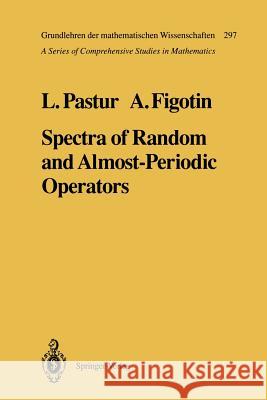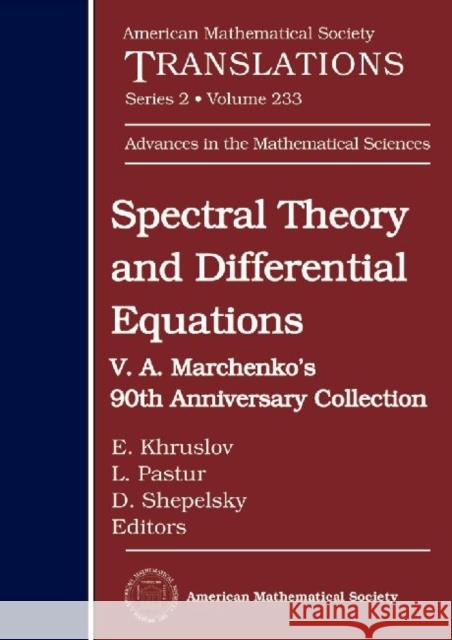topmenu
Wyniki wyszukiwania:
wyszukanych pozycji: 2
 |
Spectra of Random and Almost-Periodic Operators
ISBN: 9783642743481 / Angielski / Miękka / 2011 / 587 str. Termin realizacji zamówienia: ok. 22 dni roboczych. In the last fifteen years the spectral properties of the Schrodinger equation and of other differential and finite-difference operators with random and almost-periodic coefficients have attracted considerable and ever increasing interest. This is so not only because of the subject's position at the in tersection of operator spectral theory, probability theory and mathematical physics, but also because of its importance to theoretical physics, and par ticularly to the theory of disordered condensed systems. It was the requirements of this theory that motivated the initial study of differential...
In the last fifteen years the spectral properties of the Schrodinger equation and of other differential and finite-difference operators with random an...
|
cena:
403,47 |
 |
Spectral Theory and Differential Equations : V.A. Marchenko's 90th Anniversary Collection
ISBN: 9781470416836 / Angielski Termin realizacji zamówienia: ok. 30 dni roboczych. This volume is dedicated to V.A. Marchenko on the occasion of his 90th birthday. It contains refereed original papers and survey articles written by his colleagues and former students of international stature and focuses on the areas to which he made important contributions: spectral theory of differential and difference operators and related topics of mathematical physics, including inverse problems of spectral theory, homogenization theory, and the theory of integrable systems. The papers in the volume provide a comprehensive account of many of the most significant recent developments in...
This volume is dedicated to V.A. Marchenko on the occasion of his 90th birthday. It contains refereed original papers and survey articles written by h...
|
cena:
756,05 |










